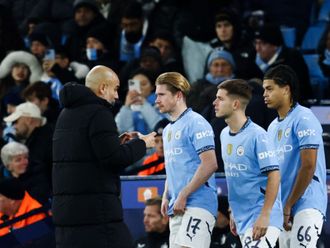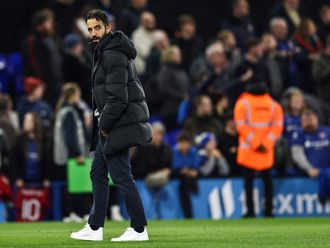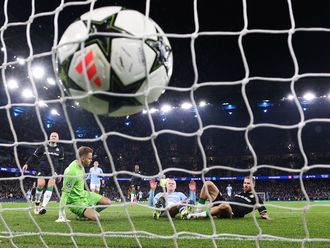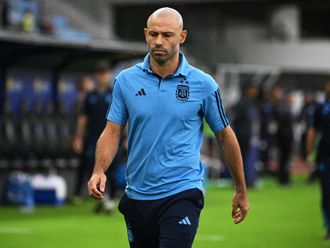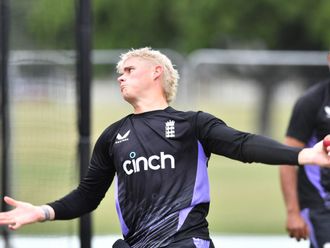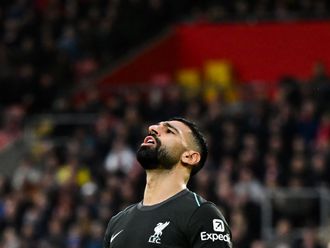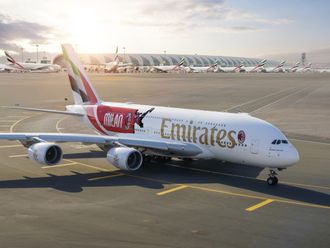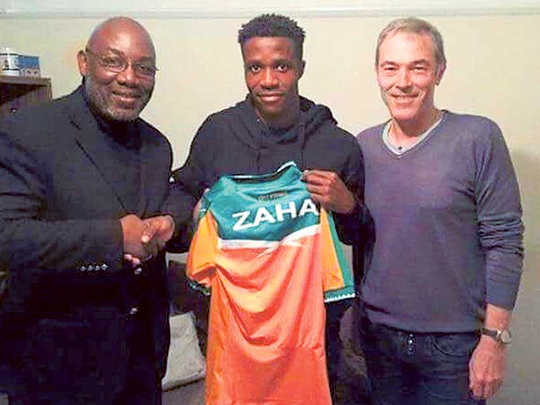
London: Wilfried Zaha’s defection from England to the Ivory Coast was announced in a low-quality photograph, issued by the Ivorian Football Federation and taken in what looks like Zaha’s front room.
In it, the Crystal Palace winger is posing with his new jersey, flanked by federation president Augustin Sidy Diallo and coach Michel Dussuyer, wearing what you might call the trademark Zaha expression: wide-eyed, incredulous and yet vaguely sceptical, the look of a man who has just opened his front door to find a shire horse on his doorstep. No handler; no bag of apples; no covering note. Just the horse.
A fittingly low-key end, then, to what was ultimately a low-key England career: two caps, both in friendlies, both before his 21st birthday, when Zaha was as fresh and appetising as a Harrods Christmas hamper.
It is easy to forget just how exciting he was back then: quick, fearless and flamboyantly gifted, like a computer game character with all the cheats unlocked.
Of course, we all know how things turned out.
Bequeathed by Sir Alex Ferguson to his successor as a parting gift, Zaha ended up being spurned by more Manchester United managers (three) than he would earn Premier League appearances (two) at the club.
Abashed, Zaha returned to Palace: a spare wheel, an unwanted guest. United were Zaha, and Zaha was the shire horse.
Still, for a nation theologically wedded to the idea of the instant miracle cure (Michail Antonio! Tammy Abraham! Jermain Defoe!), it is at least curious that for all his flaws and inconsistencies, Zaha never managed to earn that third cap. Partly, the blame for that lies with Zaha himself. But partly, you suspect, the blame lies within English football, and its chronic intolerance of the mercurial.
A statistic: in last season’s Premier League, Zaha successfully beat more opponents than any other English player. Another statistic: Zaha lost the ball while dribbling more than anybody else.
Such is the fate of the player who dares to try something. Yet in the austere court of public opinion, only the second fact mattered. That Zaha was one of the few ‘conventional’ English wingers playing at the highest level was immaterial. He fell prey to a culture where what you cannot do counts for more than what you can. And so, quickly and irrevocably, English football made up its mind on Zaha. He was a luxury. A liability. A fraud. The phrase “bad attitude” began to attach itself.
The accusation of “no end-product” became a sort of orthodoxy by repetition, neatly sidestepping the fact that Palace barely had a striker worthy of the name until Christian Benteke arrived in the summer. (Since when, Zaha has made more assists than in the past four seasons combined.) We can bicker and quibble about how good Zaha might have been in a white shirt. (Was the Euro 2016 squad really so far beyond him?) But the argument that he was not even worth a look — that he genuinely deserved to finish with the same number of caps as Bobby Zamora and Zat Knight — is hard to sustain. And, unlike other promising youngsters who spurned the Football Associations’s advances — Alex Iwobi, Victor Moses, Adnan Januzaj — Zaha was already ours. He needed no convincing. All he needed was a chance.
At next year’s Africa Cup of Nations, Zaha will become the first England player in six decades to turn out for another nation. In a way, it has worked rather well for him. A prominent role in a young, developing team. A major finals to savour. A World Cup in 2018. Here, perhaps, is the bitter irony: England may well end up missing Zaha more than Zaha will ever miss England.
— The Telegraph Group Ltd, London 2016


